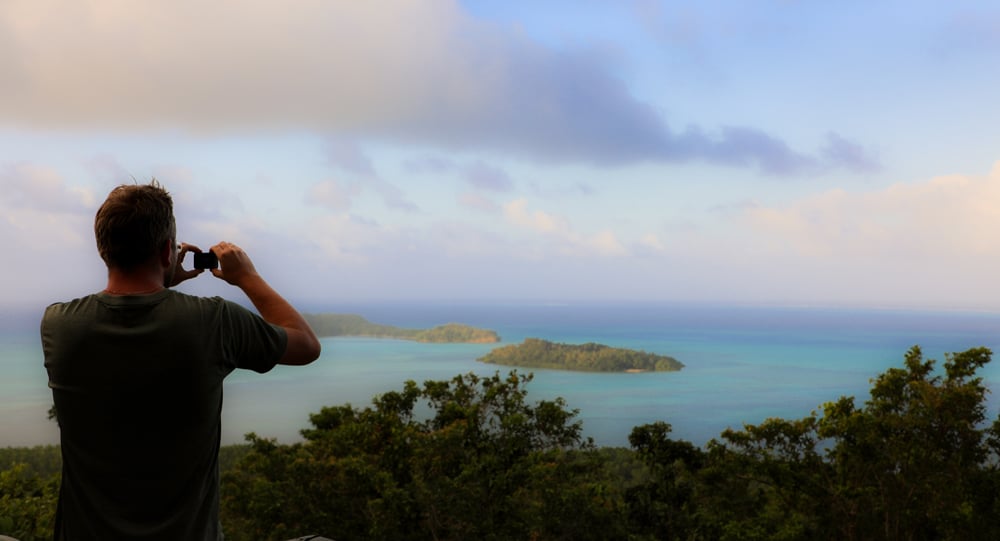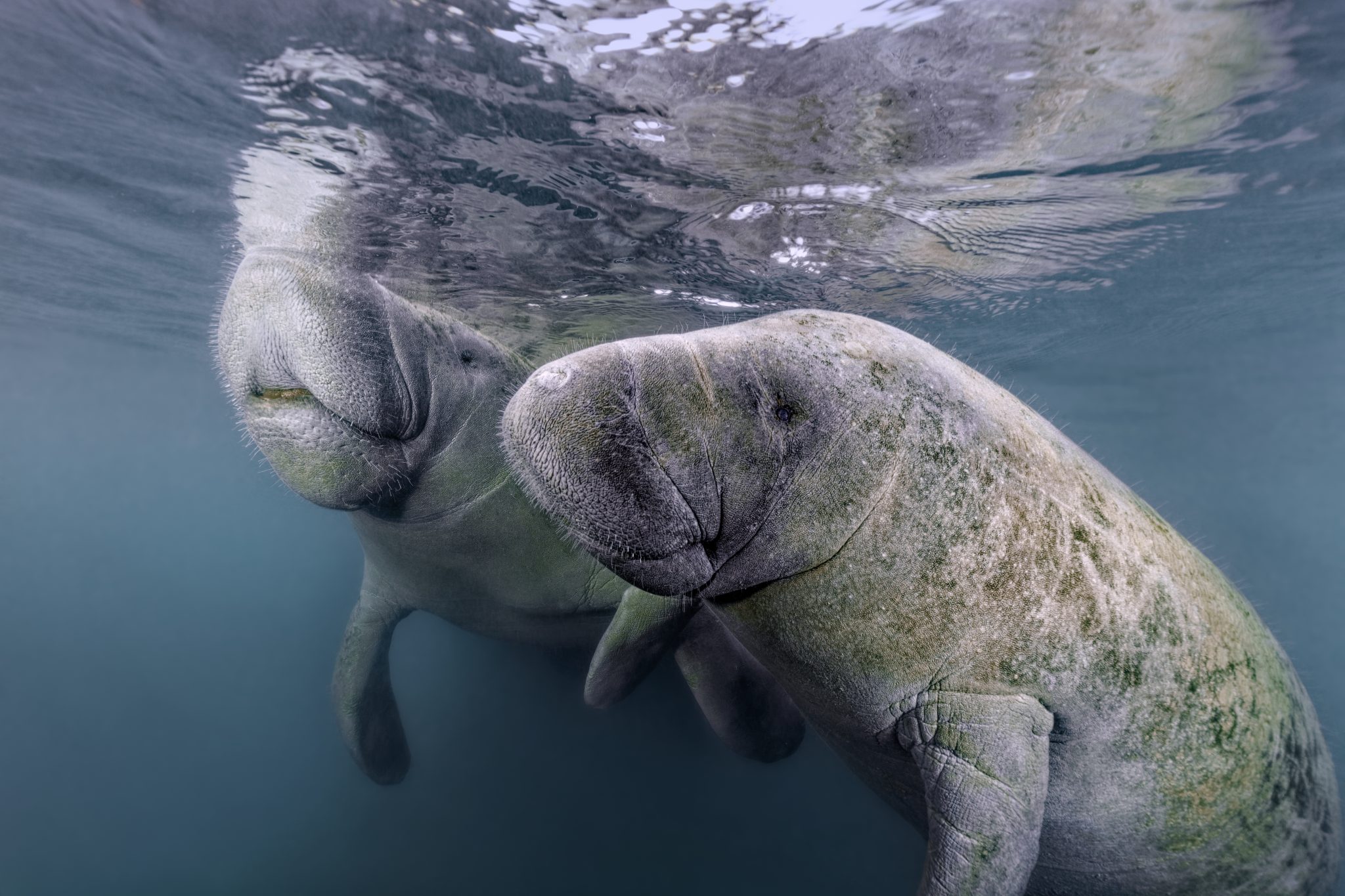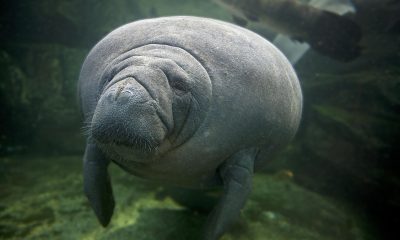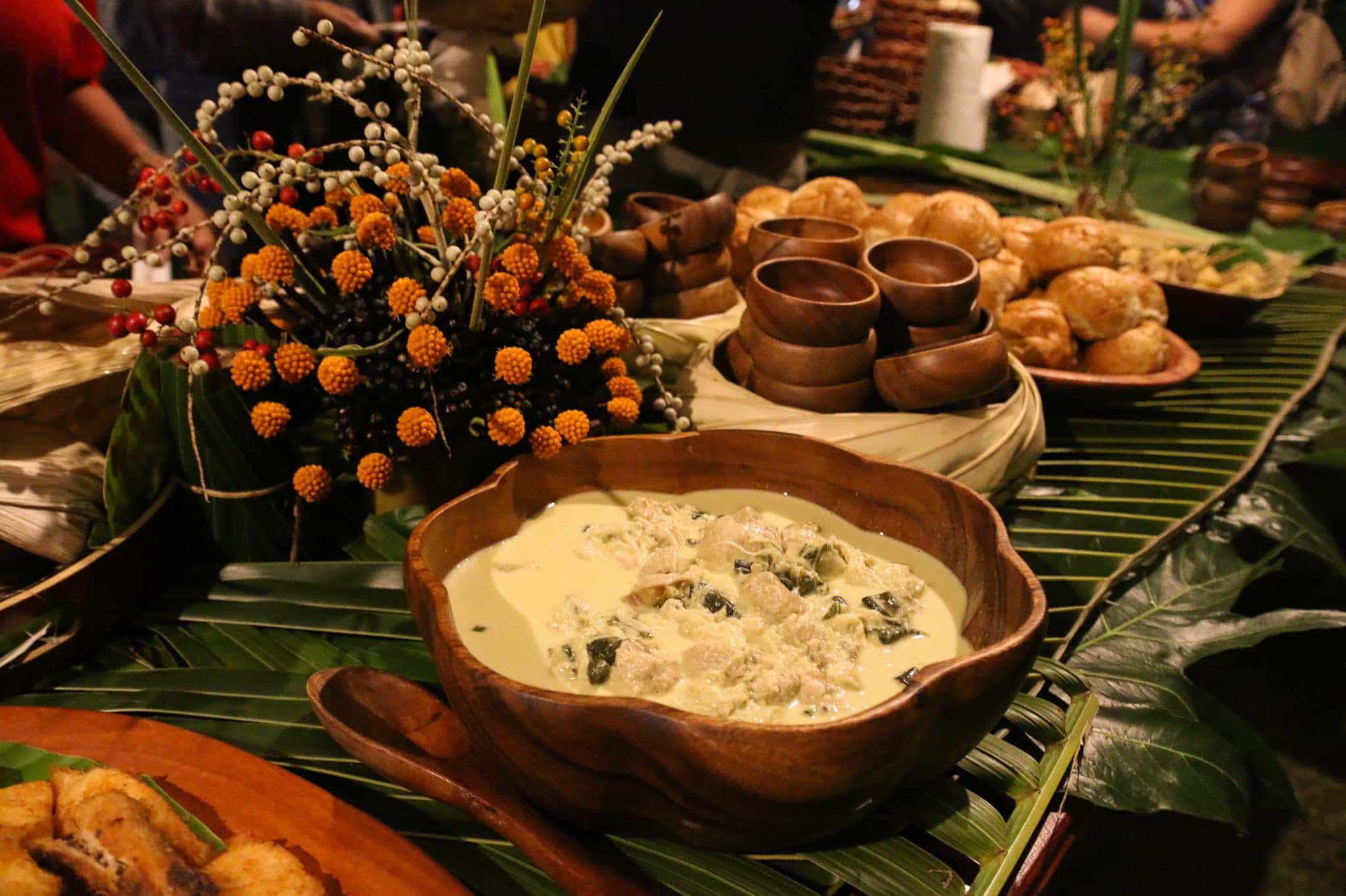Marine Life & Conservation
Palau aims to become first Carbon Neutral Tourism Destination

 Project to make Palau a carbon neutral destination launched by Palau Bureau of Tourism, Sustainable Travel International, and Slow Food.
Project to make Palau a carbon neutral destination launched by Palau Bureau of Tourism, Sustainable Travel International, and Slow Food.
The Palau Bureau of Tourism, Sustainable Travel International, and
Slow Food have launched a new project in Palau that aims to mitigate the tourism sector’s carbon footprint and establish Palau as the world’s first “Carbon Neutral Tourism Destination.” The project is taking an innovative destination-level approach that includes promoting local food production within tourism and developing a carbon management program for tourists. This project supports the objectives of the Coalition of Fragile Ecosystems (COFE) and International Cooperation and Development Fund (TaiwanICDF) and has been endorsed by various government agencies, including Palau’s Ministry of Natural Resources, Environment and Tourism; Ministry of Community and Cultural Affairs; Ministry of Education; the Our Oceans
2020 Organizing Committee; and the Office of the President.
Known for its unspoiled natural beauty and pristine seas, the Pacific Island nation of Palau is regarded as one of the top marine tourism destinations in the world. Last year, more than 89,000 international tourists visited the country, which has a population of just under 22,000. As such, tourism represents the islands’ main source of economic income and employment.
As a small island destination, Palau is extremely vulnerable to the impacts of climate change, which threaten the islands’ marine ecosystems, coastal communities, and tourism industry.
While tourism is the economic lifeblood of the island, it also contributes to the climate crisis. Tourists are responsible for a significant portion of Palau’s carbon footprint as they travel to the remote island by plane and consume food imported from overseas.
In recent years, Palau has taken extensive measures to further environmental protection and responsible tourism. This includes establishing one of the world’s largest marine sanctuaries; creating the world’s first mandatory eco-pledge (Palau Pledge) that all visitors are required to sign upon entry; banning tour operators from utilizing single-use plastics and styrofoam; and protecting its marine environment through the adoption of the world’s strictest national sunscreen standard. This bold new initiative, which is being led by Sustainable Travel International, builds upon the country’s past efforts to specifically address the tourism sector’s climate impact.
This project will reduce the carbon footprint of tourism in Palau by increasing the proportion of food that is sourced from local producers and reducing the industry’s dependence on imports. Among other activities, the project will accomplish this by celebrating the islands’ gastronomic heritage and building the capacity of farmers and fishers to market their products to tourists. Along with combating climate change, this will create income-generating opportunities for local communities and improve food security on the islands. A specific emphasis will be placed on sustainable production and empowering women producers to participate in the tourism value
chain.
To compensate for tourism’s unavoidable emissions, the project will develop a first-of-its-kind carbon management program for tourists to Palau. The new online platform will allow visitors to calculate and offset the carbon footprint associated with their trip, including both their travel to
and activities in Palau. In line with Palau’s leadership in marine conservation, the offset contributions will be invested in blue carbon initiatives, such as mangrove restoration, or sustainable production activities in the region that reduce CO2 emissions. It is estimated that
this program has the potential to raise over USD $1 million a year for these carbon reduction initiatives.
“If the current COVID-19 crisis has taught us anything, it’s that we must strengthen our nation’s resilience to external threats – the greatest of which is climate change,” said Kevin Mesebeluu, Director of the Palau Bureau of Tourism. “Palau is blessed with some of the world’s most pristine natural resources, inherited through culture and tradition, and placed in our trust for the future generation. We must work to actively protect them, while also investing in our people. Palau embraces sustainable tourism as the only path forward in the new era of travel, and we believe that our destination can and must be carbon neutral.”
“This project has enormous potential to transform the traditional tourism model and is a notable step towards lessening the industry’s climate impact. Destinations around the world face these same challenges of balancing tourism growth with environmental protection. Carbon neutrality is the future of tourism and the direction that all destinations must head as they recover from COVID-19. We commend Palau for their continued leadership, and hope this inspires other destinations to strengthen their own climate resilience strategies,” said Paloma Zapata, CEO of Sustainable Travel International.
“The rapid growth of an unsustainable tourist industry based on broken food systems has been a key driver of the climate crisis and ecosystem destruction. This project represents the antithesis, a solution that strives to strengthen and restore value to local food systems, reduce the cultural and environmental damage caused by food imports, and improve the livelihoods of food producers both in Palau and beyond,” said Paolo di Croce, General Secretary of Slow Food International.
Project updates will be shared regularly on www.sustainabletravel.org
Blogs
Heading out on the water this Summer? Watch for manatees

As National Safe Boating Week approaches, Save the Manatee® Club is urging boaters, and anyone that enjoys Florida’s waterways, to respect and protect the defenseless manatees that inhabit our shared waterways. From May 18 to 24, leading up to Memorial Day Weekend, the campaign aims to raise awareness about recreational boating safety and the importance of safeguarding imperiled manatees during the summer boating season. This week also emphasizes the importance of encouraging boaters to enroll in a boating safety course.
Manatees are semi-migratory marine mammals that are commonly found in shallow estuaries, bays, rivers, canals, and coastal areas throughout Florida and neighboring states. With some manatees venturing as far west as Texas and as far north as Massachusetts, collisions between these gentle giants and watercraft have become distressingly frequent. Boat propellers and high-speed collisions pose significant threats to manatees, often resulting in severe injuries or even death.
Save the Manatee Club is calling on all water enthusiasts to follow essential manatee safety tips to ensure the well-being of the imperiled manatee:
- Obey Speed Zone Signs: Familiarize yourself with and adhere to posted speed limits to prevent collisions with manatees.
- Reduce Glare with Polarized Sunglasses: Wear polarized sunglasses to enhance visibility and spot manatees below the water’s surface.
- Recognize Manatee Signs: Learn to identify signs of manatees in the area, such as swirls or flat spots on the water caused by their movements.
- Respect Manatee Sanctuaries: Keep a safe distance from posted manatee sanctuaries and avoid pursuing or harassing these marine mammals, as it is illegal and can disrupt their natural behaviors.
- Report Distressed Manatees: In Florida, promptly report distressed, injured, tagged, or orphaned manatees to the Florida Fish and Wildlife Conservation Commission (FWC) at 1-888-404-FWCC (3922). Outside of Florida, report sightings to the appropriate state agency or rescue organization. A list of agencies to contact is available at savethemanatee.org/report.
- Protect Seagrass Beds: Avoid boating over seagrass beds and shallow areas where manatees may be feeding. Stick to deep water channels while remaining vigilant, as manatees also utilize these channels during their travels.
- Dispose of Fishing Line Responsibly: Anglers should properly dispose of or recycle used fishing line to prevent entanglement hazards for manatees.
“Each year, National Safe Boating Week provides an excellent reminder for all of us to be aware that we share our waterways with vulnerable manatees,” emphasized Patrick Rose, Aquatic Biologist and Executive Director of Save the Manatee Club. “With the recent Unusual Mortality Event on Florida’s East Coast claiming an alarming number of manatees’ lives, it is more crucial than ever to prevent preventable deaths caused by watercraft collisions. By following manatee-safe boating guidelines, such as obeying speed zones and remaining vigilant for manatees, everyone on the water can contribute to the protection of these gentle giants.”
Save the Manatee Club offers a range of free materials to help safeguard manatees and raise awareness about manatee-safe boating practices. Shoreline property owners and park or marina managers can order aluminum dock signs to alert others about the presence of manatees in their areas. Boaters and paddlers can request packets containing a safety tips card, a waterproof boat banner, and a decal to display on their vessels, providing the number to report manatees in distress. To view and request these materials, visit savethemanatee.org/resources. Save the Manatee Club will also be hosting a live webinar for National Safe Boating Week on Tuesday, May 21st at 6pm EST. To register, visit savethemanatee.org/register.
Blogs
The Ocean Cleanup Breaks 10,000,000 KG Barrier

The Ocean Cleanup, the global non-profit project, has removed a verified all-time total of ten million kilograms (22 million lbs.) of trash from oceans and rivers around the world – approximately the same weight as the Eiffel Tower.
To complete its mission of ridding the oceans of plastic, The Ocean Cleanup uses a dual strategy: cleaning up the Great Pacific Garbage Patch (GPGP) to remove the plastic already afloat in the oceans, while stopping the flow of plastic from the world’s most polluting rivers.
Through cleaning operations in the GPGP and in rivers in eight countries, the cumulative total of trash removed has now surpassed ten million kilograms. This milestone demonstrates the acceleration of The Ocean Cleanup’s impact, while underlining the astonishing scale of the plastic pollution problem and the need for continued support and action.
While encouraging for the mission, this milestone is only a staging point: millions more tons of plastic still pollute our oceans and The Ocean Cleanup intends to continue learning, improving and innovating to solve this global catastrophe.
This announcement comes as governments from around the world meet to continue negotiations to develop a new legally binding instrument to end plastic pollution at INC4 in Ottawa, Canada. Representatives of The Ocean Cleanup will be in attendance and the organization will be urging decision-makers to collaborate towards a comprehensive and ambitious global treaty which addresses plastic at all stages of its life cycle and in all marine environments worldwide, including in areas beyond national jurisdiction.
It is encouraging to see that the need for remediation is reflected in the various options for potential treaty provisions. It is essential that the final treaty contains clear targets for the remediation of legacy plastic pollution, and reduction of riverine plastic emissions.
Tackling plastic pollution requires innovative and impactful solutions. The treaty should therefore incentivize the innovation ecosystem by fostering innovations that make maximal use of data, technology and scientific knowledge – such as those designed and deployed by The Ocean Cleanup.
‘After many tough years of trial and error, it’s amazing to see our work is starting to pay off – and I am proud of the team who has brought us to this point.’ said Boyan Slat, Founder and CEO of The Ocean Cleanup. ‘While we still have a long way to go, our recent successes fill us with renewed confidence that the oceans can be cleaned.’
The Ocean Cleanup was founded in 2013 and captured its first plastic in 2019, with the first confirmed catch in the GPGP coming soon after the deployment of Interceptor 001 in Jakarta, Indonesia. After surpassing one million kilograms of trash removed in early 2022, the non-profit project has since progressed to the third iteration of its GPGP cleaning solution, known as System 03, and a network of Interceptors currently covering rivers in eight countries, with more deployments set for 2024.
About The Ocean Cleanup
The Ocean Cleanup is an international non-profit organization that develops and scales technologies to rid the world’s oceans of plastic. They aim to achieve this goal through a dual strategy: stemming the inflow via rivers and cleaning up the legacy plastic that has already accumulated in the ocean. For the latter, The Ocean Cleanup develops large-scale systems to efficiently concentrate the plastic for periodic removal. This plastic is tracked and traced through DNV’s chain of custody model to certify claims of origin when recycling it into new products. To curb the tide via rivers, The Ocean Cleanup has developed Interceptor™ solutions to halt and extract riverine plastic before it reaches the ocean. Founded in 2013 by Boyan Slat, The Ocean Cleanup now employs a broadly multi-disciplined team of approximately 140. The foundation is headquartered in Rotterdam, the Netherlands.
For more information, visit: theoceancleanup.com and follow @theoceancleanup on social media.
-

 Marine Life & Conservation Blogs3 months ago
Marine Life & Conservation Blogs3 months agoCreature Feature: Swell Sharks
-

 Gear Reviews4 weeks ago
Gear Reviews4 weeks agoGEAR REVIEW – Revolutionising Diving Comfort: The Sharkskin T2 Chillproof Suit
-

 Blogs2 months ago
Blogs2 months agoMurex Resorts: Passport to Paradise!
-

 Blogs3 months ago
Blogs3 months agoDiver Discovering Whale Skeletons Beneath Ice Judged World’s Best Underwater Photograph
-

 News3 months ago
News3 months agoPADI Teams Up with Wellness Brand Neuro to Drive Ocean Change and Create a Blue State of Mind
-

 Gear Reviews3 months ago
Gear Reviews3 months agoGear Review: Oceanic+ Dive Housing for iPhone
-

 Marine Life & Conservation2 months ago
Marine Life & Conservation2 months agoSave the Manatee Club launches brand new webcams at Silver Springs State Park, Florida
-

 Blogs2 months ago
Blogs2 months agoSeagrass Awareness Month brings critical food source for Manatees to centre stage







